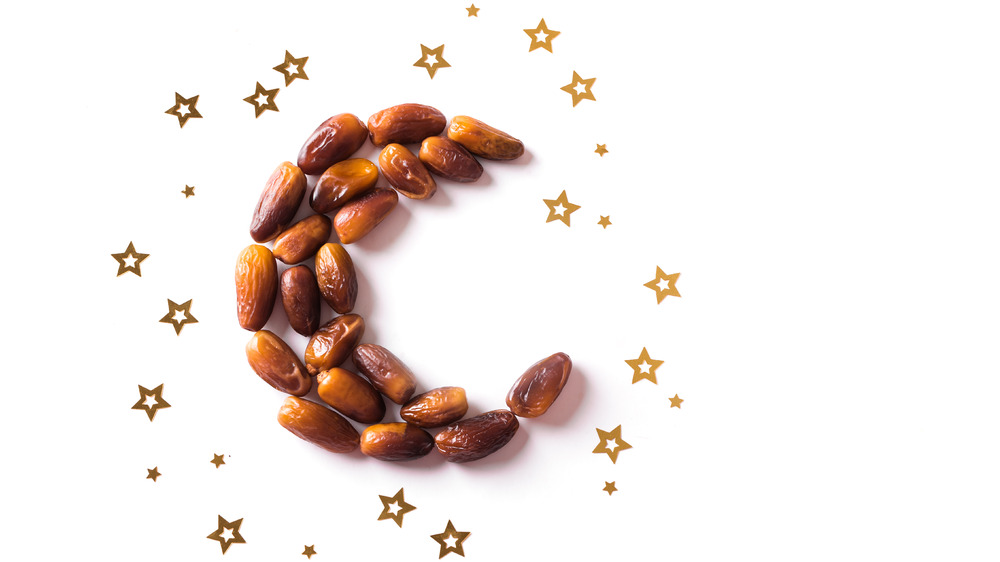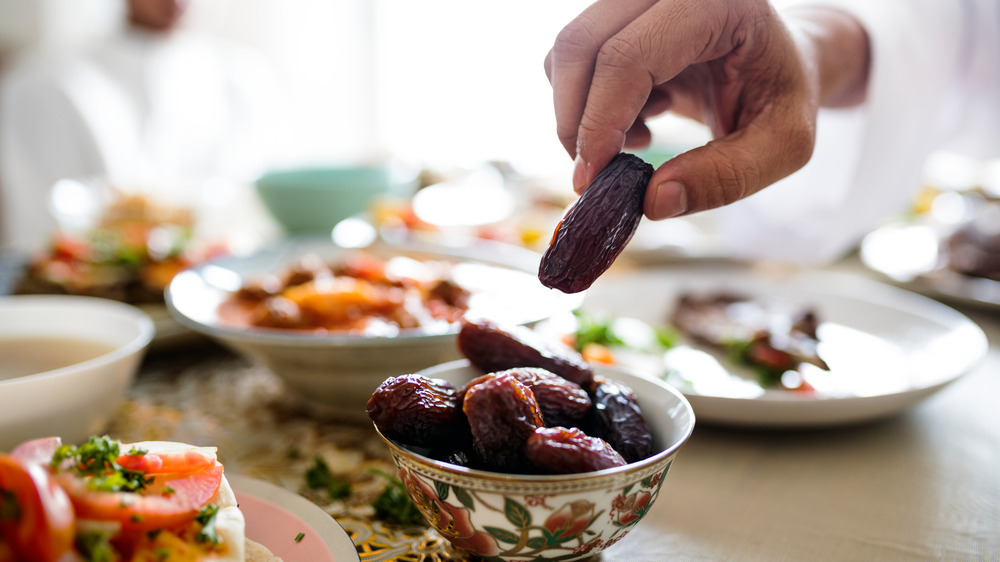The Reason We Eat Dates During Ramadan
With spring in the air, we can now start planning for Ramadan. According to Aljazeera, most countries will start observing the holiday on April 13, and diligent observers should plan to fast daily until May 12. The month holds a holy significance to Muslims, as the holiday marks the period of time when God revealed the first verses of the Quran to the Prophet Muhammed. Over the millennia, traditions have popped up in association with the celebration, including the consumption of dates.
According to The Spruce Eats, dates have such a close association with Ramadan because of a teaching of the Prophet Muhammad, who said, "When one of you is fasting, he should break his fast with dates; but if he cannot get any, then (he should break his fast) with water, for water is purifying." As a result, many Muslims around the word aim to break their day-long fasts with the fruit. The fruit has a strong association with the Quran as well, appearing over 20 times throughout the scripture, and it plays an important culinary role in many Islamic countries.
The best way to break a fast
While we might not think of the date as a particularly key food in our everyday life, the fruit has played an important role in the shaping of the modern world, and it makes sense that it has garnered such a high status during Ramadan. According to The Arab Weekly, some historians believe that the fruit of knowledge that Adam and Eve ate in the Garden of Eden was a date, while UNESCO has placed the palm date and its traditions on its Intangible Cultural Heritage of Humanity list thanks to the fruit's central role in the development of the Arabic world.
With such an ancient and important history, it only makes sense to break your Ramadan fast with this nutritious fruit that has strong ties to Islam. Next time you bite into a date, take a moment to remember its central role in human history and enjoy its sweet way to end the day. We can only expect this tradition to last for millennia to come, and we wouldn't want to forget the contributions this small fruit has bestowed upon the world.

